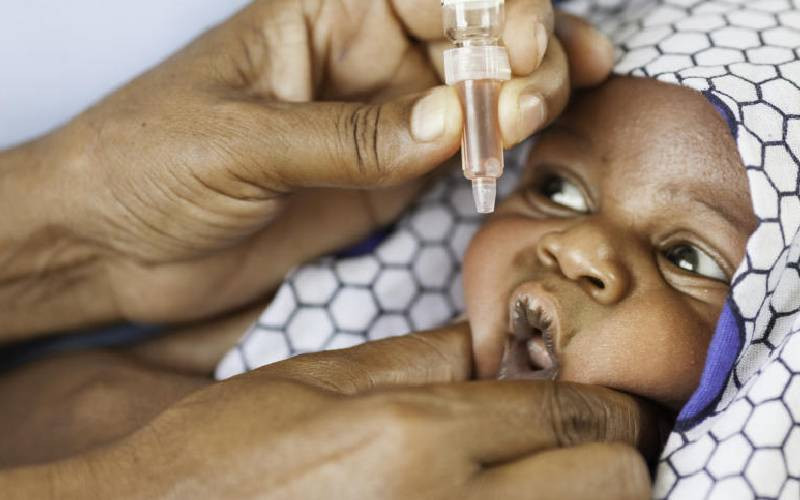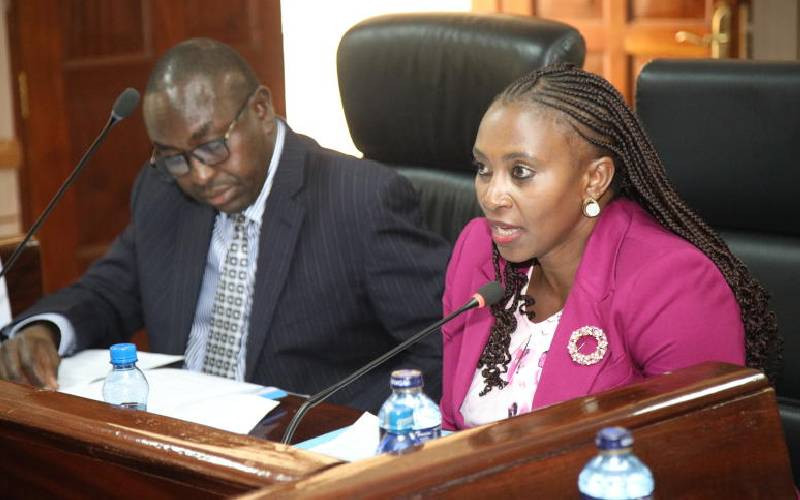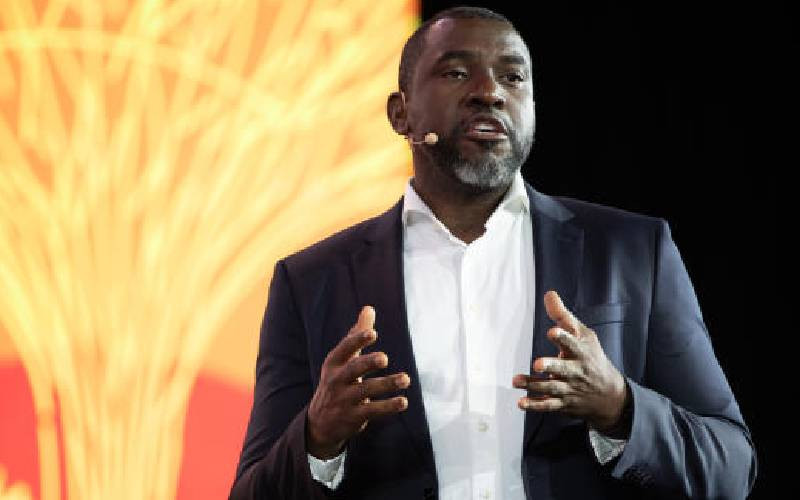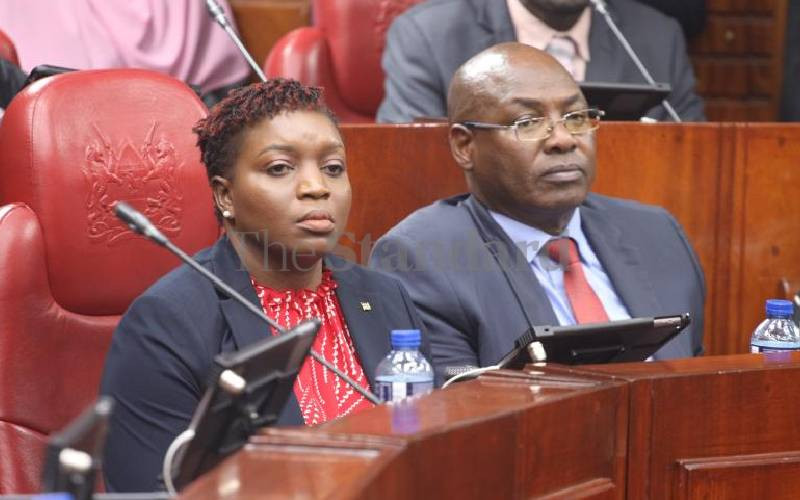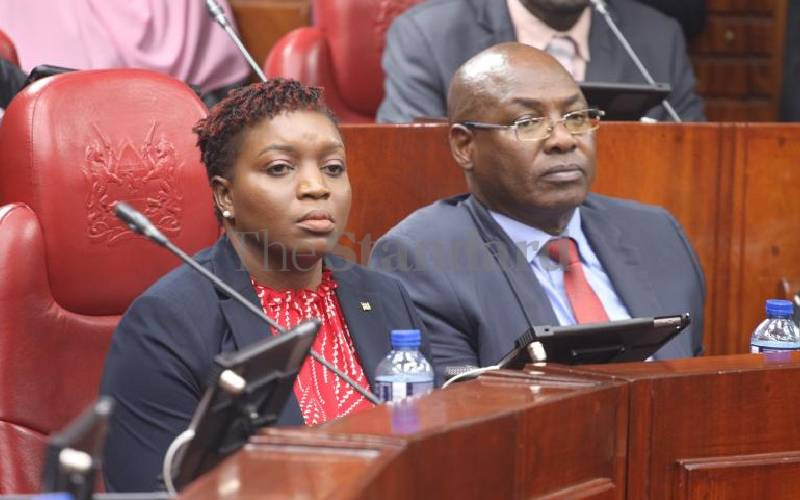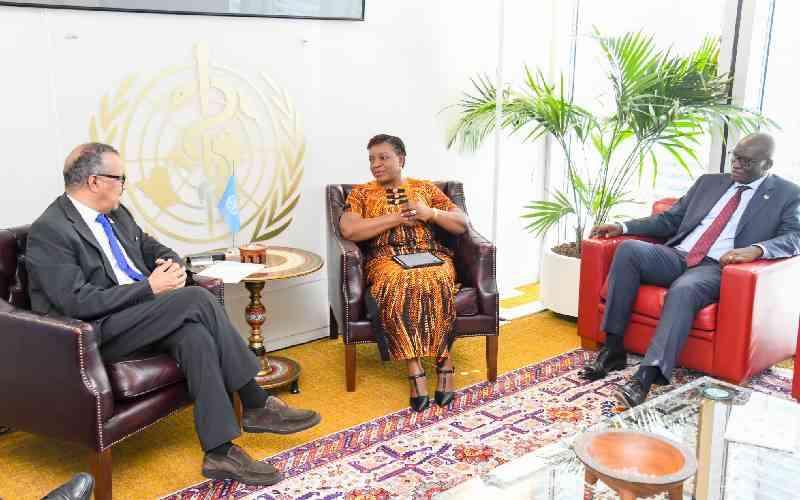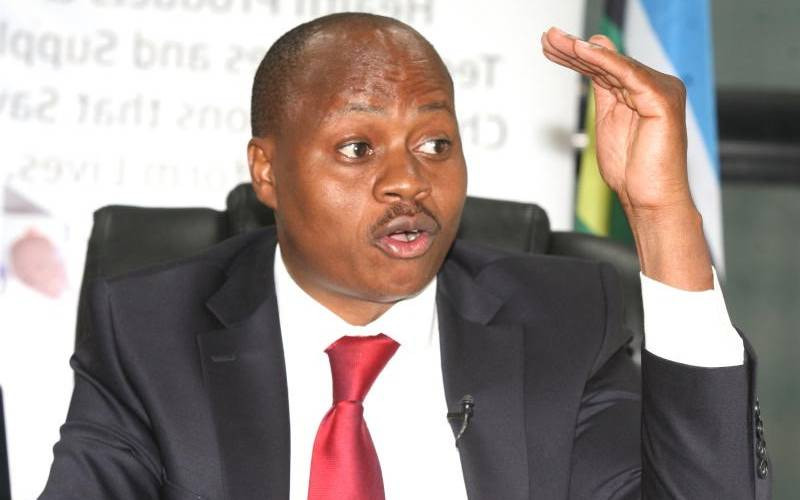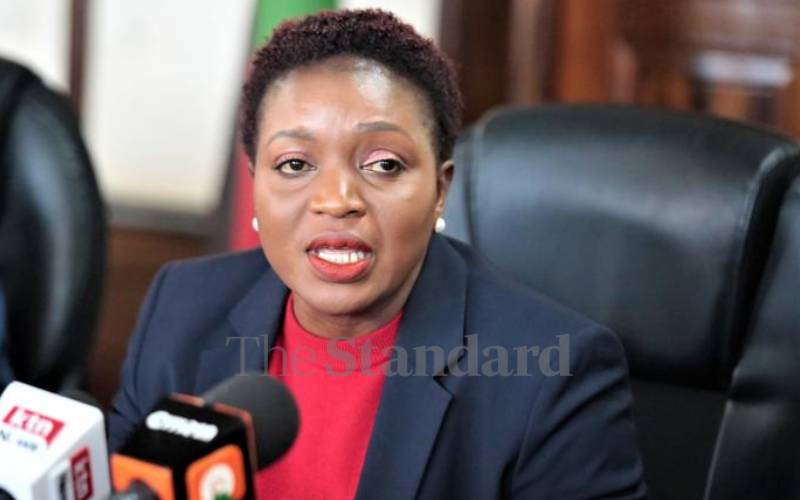
While Dionisia Mugo has chosen to be a cancer survivor instead of a victim, her war with the killer disease has come with its own fair share of financial dents.
She has been digging deep into her pockets to get tested, with more money going into buying drugs for her treatment and diet.
Her first chemotherapy session cost her Sh50,000, with the second one going for Sh70,000, yet NHIF only managed to pay Sh15,000 for each session.
According to Dionisia, the biggest challenge has been accessing the funds to be approved as a package for the healthcare services in one facility.
She says once the tests have been approved, she has to go to a private facility and pay out of pocket. She then takes the test results back to the public facility for review. The vacillation doesn’t end there. She is still required to buy the drugs to be administered in the public hospital.
"You will find that most of the public facilities do not have the right equipment for cancer treatment; and most especially now that you are required to register in the facility that is nearest to you. If you go there, the NHIF will approve for you, but you won't get tested or get the drugs because the facilities are not there."
People going through cancer treatment should be able to access treatment services, says Dionisia, from any facility without limitations as long as there is a prescription by a specialist.
Dionisia says the financial burden was even heavier after her brother was diagnosed with the same disease. With medics on strike, the situation is even more convoluted for him, after being taken ill.
- NHIF assures Kenyans as it prepares for transition
- Medics root for 'kangaroo' care to reduce preterm deaths
- Don't share your good news too soon: Sound advice backed by study
- Mass sackings loom at NHIF as new management takes over
Keep Reading
In the last ten years, cancer has been proving its infamy and notoriety, leaving families in ghoulish awe. This is one of the non-communicable diseases that has, and, continues to test the healthcare systems and policies of Third World countries.
Unfortunately, cancer is not the only non-communicable disease that kills many, especially in Kenya. Diabetes, High Blood Pressure and other diseases now referred to as lifestyle diseases have been on the rise.
Whilst Kenya’s health sector is one of the most regulated due to its vantage position, relating to human life, it is prone to graft, and the riding culture of impunity that has been thriving for decades.The constitutional provision under Article 43 mandates the state to provide healthcare for all Kenyans including reproductive and maternal health, among others.The Health Act 2017 cements the role of several authorities, including the Cabinet Secretary, as the authority in charge of the health sector. The office of the Permanent Secretary is the top accounting office, with the Director-General, as the highest-ranking technical advisor of the government in matters health.The law also established other bodies such as the Health Oversight Authority and the Kenya Health Human Resource Council.Kenya's current Constitution devolved health services providing a framework of health as a devolved function.Perhaps some of the most prominent laws that should resonate with patients such as Dionisia, are the Healthcare Act of 2023. This law is supported by other laws such as the Social Health Insurance Act, the Primary Healthcare Act, the Facility Improvement Financing Act and the Digital Health Act.
The laws are meant to establish the framework for the management of social health insurance and to provide for the establishment of the Social Health Authority.
The Social Health Authority is the institution that has since replaced the National Health Insurance Fund – an institution that was honeycombed with institutionalized graft, steeped in political patronage.George Gibore, the current Secretary-general and CEO of the Kenya Union of Clinical Officers, is one of the experts who helped in crafting the Kenya Kwanza administration's health agenda in the party's election manifesto.
According to him, when the Universal Health Coverage plan was first launched, it was not properly structured. An audit revealed that NHIF had only focused on gaps aimed at reducing the cost of healthcare, but tilted it away from the vision of UHC.
“The National Health Insurance Fund (NHIF) was not providing clear guidelines on how the people who were not employed would contribute to the health system,” Gibore told The Standard.He says the National Health Insurance Fund (NHIF) was skewed since it was only meant to offer curative services and that all the level 4 and 5 hospitals were fully served by NHIF, while levels 2 and 3 facilities were not.There was also a multiplicity of packages such as the Linda Mama, Edu Afya, Civil Servants’ Scheme and the categorisation of membership packages.“For instance, there would be a case where a student would be covered by Edu Afya together with their parent’s NHIF. The Social Health Insurance was brought to standardise and equalise Kenyans and bring everyone on board.”Additionally, anyone doesn’t need to be an NHIF cardholder to get healthcare services. But under the new health insurance, everyone will be registered, including children.Gibore says resources collected in a facility should be retained to enable facilities to continue replenishing or buying reagents and other consumables when, and if needed.“Earlier, the money collected was remitted to a central account of the county, and most of the time, processing that money to come to the hospital would become a problem.”Previously, the lack of costing of services had made it difficult to have the lower level facilities, like levels 3 and 2 under NHIF, since it was difficult to quantify the amounts required.The recurring costs, therefore, will help grow the percentage of budgetary allocation for the health sector.“For instance, for every end of annual budgetary term, the facility will be able to communicate that maybe they have Sh24 million that will be put with the next year’s financial appropriation, so that if the government had appropriated Sh10 Million, then the facility will have Sh34 million. This means they have grown the capacity to enlarge their services.”
But, like a sweet-smelling rose that comes with a barb that pricks deep, some quarters saw the risk in the new laws and briskly moved to court. That led to a dragging process of litigation that led to its suspension by the high court. The case was by a concerned citizen Joseph Enock.
Through his lawyer, Harrisson Kinyanjui, Enock had taken exception with three sections of the Social Health Insurance Fund Act, including 26(5) that makes it mandatory for one to be registered before enjoying public services from national and/or county governments; Section 27(4) that allows only Kenyans whose contributions are up-to-date and active to access healthcare services; and Section 47(3) which makes membership to the health scheme mandatory for all Kenyans and foreigners in the country.
While the Court of Appeal later suspended the high court’s ruling, it left the government with a hobble. The higher court retained the lid on the three sections, making it a self-destructive victory for the state.
Besides the Joseph Enoch case, the Kenya Medical, Pharmacists and Dentists Union has also been grinding an axe with the new law.
According to a document titled “Issues arising from the Social Health Insurance Fund Act 2023” shared with The Standard by Deputy Secretary-General, Dennis Miskellah, the union questions the legality and need for three insurance funds.
“Why do we need the 3 funds? How do they relate with each other to achieve the objectives of UHC?”, poses a section of the document.
The union also had issues with the provision ‘Means Testing Instrument’ ” which, according to the law, is a set of indicators that capture various socio-economic aspects of an individual or a household for purposes of conducting means testing. To which the union poses, “What are these parameters? Who came up with these parameters? What is the role of CoG in coming up with them?”
Besides the legal impediments, the state would later get muddled in an administrative conflict over its approach to replace the existing National Hospital Insurance Fund with the Social Health Authority. The transition is still on, despite the slow painful shift.
But while patients such as Dionisia continue to wallow in a long night of misery, one of the key institutions expected to feed into these laws and make them successful is the Kenya Medical Supplies Authority. This national body has been suffering disrepute. The authority morbidly came under sharp focus in the wake of COVID-19 after its services were riddled by sleaze leading to the dismissal of its management.
At least 7.8 million dollars meant for the purchase of emergency PPEs for healthcare workers and hospitals across the country, was allegedly misappropriated by individuals with political links.
The man appointed by the president to institute reforms, Dr Ben Mulwa, told The Standard he is still cleaning up the mess.
“I think prior to May 2023, KEMSA for over three years had been bedevilled by many mishappenings, I would call them, emanating from the COVID-19 issues”, Dr. Mulwa acknowledges, adding, “And prior to that COVID-19 issues, there have been many issues in the organisation”.
But he attributes the challenges to staffing.
“Of course, the major and outstanding thing was the organisational imbalance that was there, especially on the human capital component, where a lot of staff were working from home. So, we had a lot of human resource issues,” says Mulwa.
More scandals would continue being reported after President William Ruto’s election.
But Dr Mulwa, who previously worked in the Ministry of Health after serving as Health CEC Makueni County, now says he and his new crew, are defying the violence of the sea, as they steer the ship towards the steeple spire that now dances on the horizon.
“What the current structure of UHC does, is the government introduced laws under the Social Health Insurance Act, which establishes both the primary health care fund and the social health insurance fund, which in a sense will mean there will be financing landscape change in terms of primary health care and secondary and tertiary care”.
What that means to KEMSA, says Mulwa, is that the primary health care fund, which will finance the primary health care facilities, will mean that health in level 2, level 3, and level 1 facilities through the primary care networks will be able to quantify their needs and have their resources at the primary care network level.
Unions including the ones Gibore and Miskellah lead believe that if the laws are fully implemented to the latter, the Universal HealthCare dream will be finally realised.They therefore call on the government to establish a working committee to carry out a countrywide evaluation and restructure the health sector.
Besides the vagaries of the Social Health Act, there is also the Digital Health Act, 2023 which according to the Ministry of Health is meant to provide for the establishment of a Health Agency, a framework for the provision of digital health services and protection of personal health information and service delivery.
There is also the Primary Healthcare Act of 2023 which is meant to provide a framework for the delivery of, access to, and management of primary health care and other related services. This law is meant to ensure that healthcare is structured and funded.
 The Standard Group Plc is a multi-media organization with investments in media platforms spanning newspaper print
operations, television, radio broadcasting, digital and online services. The Standard Group is recognized as a
leading multi-media house in Kenya with a key influence in matters of national and international interest.
The Standard Group Plc is a multi-media organization with investments in media platforms spanning newspaper print
operations, television, radio broadcasting, digital and online services. The Standard Group is recognized as a
leading multi-media house in Kenya with a key influence in matters of national and international interest.

